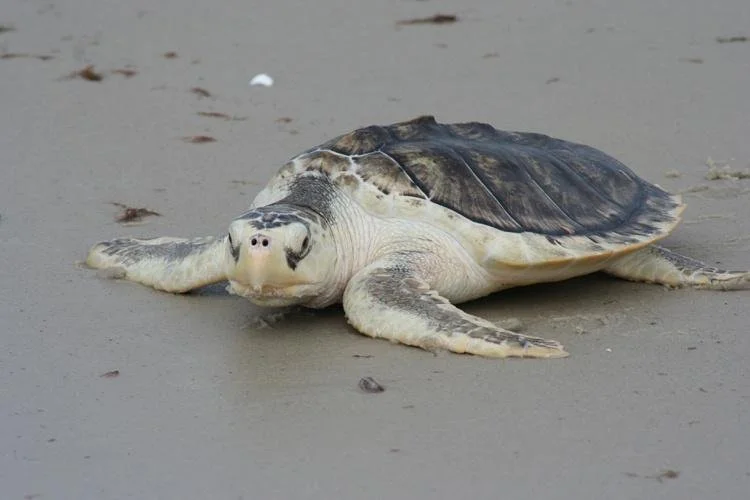An Atlantic Ridley sea turtle
Edited from a New England Council (newenglandcouncil.com) report
BOSTON
The New England Aquarium has reported an increase in treatment for hypothermic sea turtles. The number of cold-stunned sea turtles found in Massachusetts has been steadily increasing for the past 20 years. Warmer ocean temperatures during the fall have delayed sea-turtle migrations and indicate climate change’s effect on the New England.
The New England Aquarium and its partners have surveyed the beaches around Cape Cod to find turtles and transport them to the aquarium’s Sea Turtle Hospital for treatment. Once the turtles arrive at the hospital, they are given a physical exam to determine the best course of treatment. Staff at the hospital say most of the turtles are severely dehydrated and have pneumonia. Each turtle receives a custom treatment to ensure that they are given the appropriate amount of time to recover before they return to the ocean.
The healing process can take weeks to years depending on the severity of the turtle’s condition. In total, the hospital has treated 170 turtles this season; this includes 133 critically endangered Atlantic Ridley turtles and 37 green turtles.
The director of animal health at the New England Aquarium, Dr. Charles Innis, said, “All of our sea turtle patients receive individualized care based on their condition. Depending on the severity, turtles may need weeks, months, and sometimes more than a year of treatment before they are at a point where we can clear them for release back into the ocean.”










